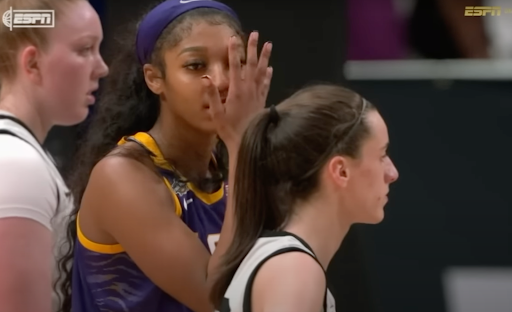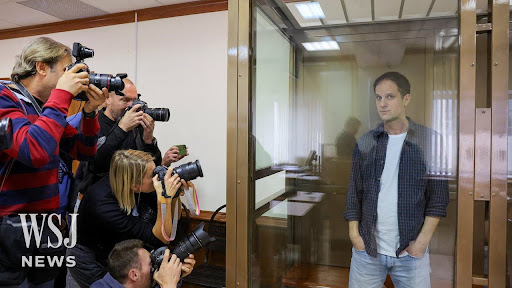Earlier this year I wrote a column about the concussion problem in the NFL and my newly found uneasiness about the league I had revered growing up.
The point I tried to make was that the emerging information about the link between concussions and brain damage, and the general trend of NFL players suffering greatly later in life because of the violent nature of the game were too much for me to overlook as a fan.
Some didn’t appreciate me using this space to talk about sports. A comment from “Former Torcher” on our website, torchonline.com, said, “The EIC’s column used to be a place for solid, serious writing. What is this dribble [sic]? Focus on important topics, who cares what you think of the NFL?”
At first, I thought she might have a point. Now, in light of the Jovan Belcher tragedy, I don’t. Belcher, a Kansas City linebacker, fatally shot his girlfriend — the mother of his 3 month old child — before heading to the Chiefs practice facility and killing himself in the vicinity of several of his coaches, including head coach Romeo Crennel and general manager Scott Pioli.
A quick disclaimer: we still don’t know how much of a role, if any, concussions played in his obvious mental issues. Chiefs chairman Clark Hunt said Belcher was “a player who had not had a long concussion history.” But the sports web site Deadspin quoted a purported friend of Belcher’s who said that the effect of concussions was one of the driving factors of his behavior.
“[R]eview the footage of the Cincinnati game,” the friend wrote in an email to Deadspin. “He took a few hits to the head directly … he was dazed and was suffering from short term memory loss. He could not remember the events that had taken place prior to that game.”
And a Boston University study released this week showed that the build up of “normal” hits to the head in football can lead to permanent brain damage called chronic traumatic encephalopathy, or CTE, which could cause headaches in mild cases and dementia in severe ones.
Much of the talk in the aftermath of the shooting has revolved around the issue of gun control. Fox Sports columnist Jason Whitlock, formerly of the Kansas City Star, wrote a column that touched on the issue of violence in the NFL, but also the problems with the country’s current interpretation of the Second Amendment.
NBC Sports anchor Bob Costas caused a minor stir when he spoke about gun control at halftime of the Sunday night game between Dallas and Philadelphia.
The gun issue is definitely something that we need to have an adult conversation about; however, the bigger issue is simply the nature of the game. Belcher is not the first suicide from an NFL player, and I don’t think it’ll be the last.
That’s not because of guns — several suicides by former players didn’t involve firearms. It’s because of the head injuries they suffered as players that eventually caused serious mental issues that led to them taking their own life.
So yes, “Former Torcher,” the state of brain injuries in the NFL is important. Every Sunday, around 1,500 men throw themselves at each other with reckless abandon, not worried about the consequences. That’s not to mention the thousands of others at lower levels dreaming to be one of those select few.
Of course, the NFL’s response is to minimize the issue with an appalling PR campaign (look at the commercial where Tom Brady tells a mother about all the things the league is doing about concussions). It doesn’t take away from the fact that football is an inherently violent game, and the people who play it are inherently prone to violence.
And as they age, that tendency becomes even more pronounced.
Jevon Belcher was likely affected by a lot more than the head injuries he sustained as a player. That doesn’t take away from the fact that his status as an NFL player made him made him more susceptible to head injuries, which lead to problems we as a society are only starting tofully grasp.
Short of abandoning hitting entirely, I don’t know what the solution is; it’s above my pay grade.
But if commissioner Roger Goodell and co. don’t figure it out soon, I fear we will see more lives needlessly cut short.

















Claire • Feb 4, 2013 at 3:19 pm
*your
Do better.
Goon • Jan 31, 2013 at 6:13 pm
“the state of brain injuries in the NFL is important. Every Sunday, around 1,500 men throw themselves at each other with reckless abandon, not worried about the consequences. That’s not to mention the thousands of others at lower levels dreaming to be one of those select few.”
You’re wrong. Here’s why:
First things first. Those 1,500 men that throw themselves at each other with “reckless abandon,” choose to do so. Playing football isn’t obligatory for a single person in the world who does it. If the safety standards are lackluster, there are sports publications and outlets that may choose to cover that, because, well, that’s what they do. They are professionals, who cover professional sports, for sports fans.
For some reason, you’ve confused the role of those professionals, with yours. You’re the EIC of a college newspaper. You’re job is to run that school newspaper, and write a column that is relevant to the student body. You have one subject to write about each week, which you routinely squander. How? Well, take this column as the latest example. There are few things less relevant to the students of St. John’s than 1,500 men throwing themselves at each other with reckless abandon each Sunday. Sure, a ton of students may enjoy the NFL, but it has nothing to do with a) their student experience, b) their school, c) the paper they’re reading, d) an opinion column that isn’t even in the sports section.
Do you still wonder why few students read the paper you work hard on?
Do better.